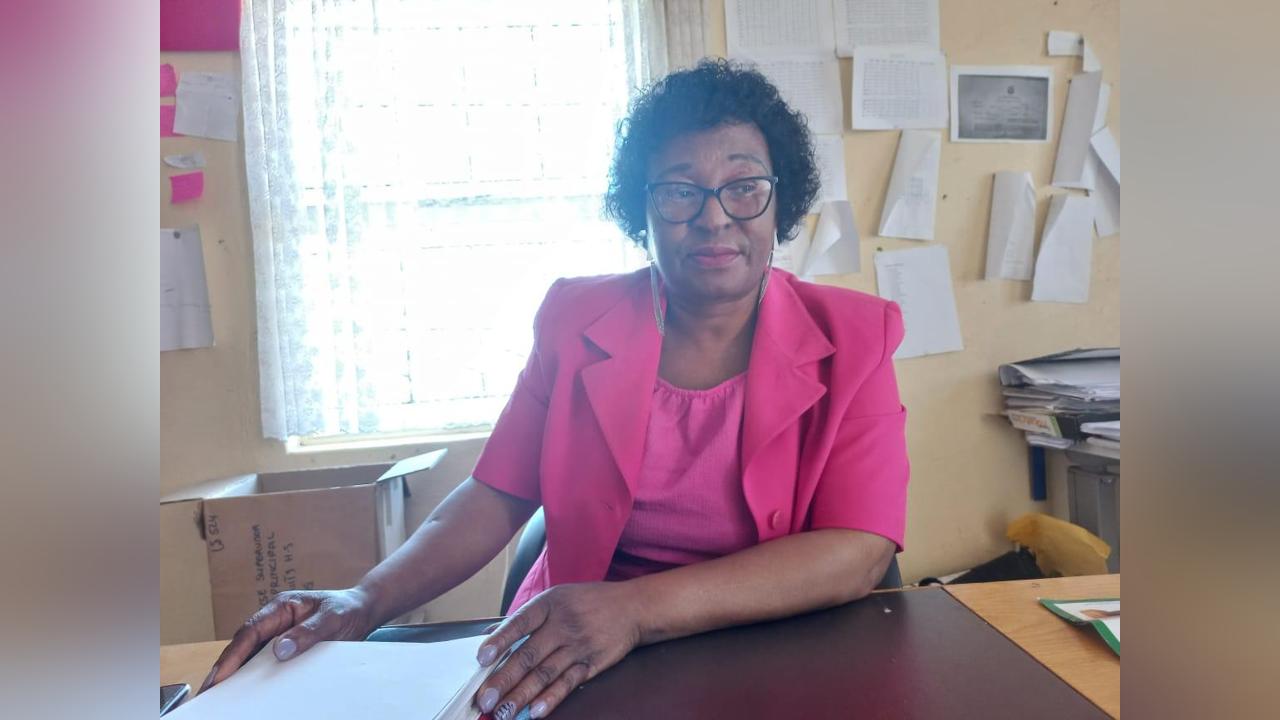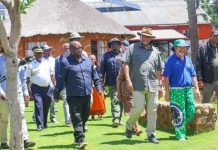Africa-Press – Lesotho. There is a widespread concern over the rapidly growing child and adolescent-headed households in the district of Quthing, resultant mainly from increased unemployment and poverty.
It has been revealed that today in Quthing, most of these households are in the hands of children orphaned by poverty-related causes – and that this state of affairs leads a similar hike in teenage pregnancy and high dropout levels in schools.
Child-headed families are households that are composed of and are controlled by children, some as young as 15 years of age, who find themselves taking care of their terminally ailing parents until death. Usually, older children are forced to develop survival tactics to support the younger ones when they are in need of support and guidance.
Concern over failure to cope and risks faced by these child-headed families transpired during a media engagement on adolescent sexual and reproductive health and rights tour, with focus on life skills based sexuality education (LBSE) that was held in Quthing, held through the partnership of the UNFPA, United Nations Population Fund, UNAIDS and UNESCO.
Speaking during the session Holy Trinity acting principal, ‘Mabasia Thaele, indicated that poverty and vulnerability experienced by the learners in this school is extreme, noting that there is no formal employment for parents, leaving older children to fend for themselves in their daily struggle to make ends meet.
“They are financially challenged, and are vulnerable to poverty because they have limited means of generating income to sustain their households,” she said.
She added that “when caregivers leave their families due to socio-economic challenges, this often results in a minor sibling having to take care of the role of an adult caregiver to care and protect the rest of the household.
She further noted that some of these learners want to live an expensive life that they could not afford, dating older men who provide for their families.
Above all these challenges, Thaele said LBSE was introduced to address all the challenges as it talks about issues affecting a child, in shaping the life of learners. She said before LBSE, learners would fall pregnant at a high rate.
“For this year only since it was introduced, we have recorded two pregnancies, while in the previous years, we used to record a higher number of learners who fall pregnant and dropped out of school because of pregnancy, due to lack of correct information,” she said.
When it was introduced in 2004 by the Ministry of Education, LBSE was intended to provide scientifically accurate, culturally, and age-appropriate knowledge and skills relating to children’s healthy development and other sexuality.
‘Matšepang Mosaase from the Ministry of Education said it was also to address early and unintended pregnancies, child marriage, and new HIV infections among other things.
She said contributing factors to this are lack of correct knowledge about sexuality issues, myths, misconceptions, and misinformation leading them into unacceptable behaviour.
“The LBSE curriculum is organized in the following themes as contexts for skills development and change behaviour; human rights and child protection, sexual and reproductive health and gender norms and gender equality to mention a few,” she elaborated.
The most disadvantaged people living in this district are orphaned children who have no capable adult relatives or guardians to support them, despite African societies’ history of a stable family support system that views children as a community’s future and as an important part of the next generation.
The Quthing district inspector of schools, Lebohang Kala, also noted that some parents do not take good care of their children, they leave their children for work in South Africa, then the older child would be forced to care for their fellow siblings.
He said: “Young as they are, these children are becoming parents to other children, because of their parents who leave them for work, some do even get married and leave their children to care for others.
” From the Lesotho Mounted Police Service’s Lance Sergeant Kopano Mota in the Child and Gender Protection Unit in Quthing, highlighted that the main cause of high pregnancies is poverty, where children get into relationships with older people, especially taxi operators.
He said: “Most parents here migrate to South Africa; most children are exposed to being parents as a result of not having parental guidance. ” However, some learners have indicated that the introduction of LBSE in schools has changed their lives.
A Holy Trinity high school learner, Makhele Makhele, said it has changed his life, with his mind focused on school work. Most of the advice that they are given in class during the life skills lessons Makhele says is not to focus on things that are from outside, or things that do not concern school life.
Makhele was taught life skills from the primary level, where he has learned the importance of knowing himself, what he wants in life, and the things he wants to achieve.
He said it has shown him the right way, taught him to know things that are best for him, and assisted him to boost his self-esteem, awareness, and acceptance.
A life skills teacher, ‘Matlotliso Sekhonyana, said this is a subject that brings her closer to learners, to understand them better and have an open mind towards their differences.
She said with this lesson, learners can open up and discuss every personal challenge, then they come up with solutions to a problem so that they have important information about their lives.
The Lesotho Demographic and Health Survey indicates that an average of 19 percent of teenage pregnancies, while the highest pregnancies are at age 18 and 19 with 31.4 percent and 39.6 percent of women having begun childbearing respectively.
Teenage pregnancy is at 23 percent among rural teenagers and 12 percent among urban counterparts. Despite much progress made in the district, children in this district face challenges concerning their rights.
The UNFPA says all adolescents and youth must be provided with comprehensive sex education to develop the knowledge and skills they need to protect their health throughout their lives. According to UNFPA, adolescents and youth across the world face considerable challenges to their sexual and reproductive health rights.
These include sexual coercion and intimate partner violence, lack of education and information, high rates of early and unwanted pregnancy, lack of access to health services, especially for contraceptives, and harmful practices such as female child, early and forced marriage, and risk of STIs including HIV.
The barriers that undermine their sexual and reproductive health and rights UNFPA says also include a lack of access to comprehensive sexuality education and essential sexual and reproductive health services.
Because of failure to enable and empower adolescents to access comprehensive reproductive care, including contraception and maternal health care, most adolescents have an unmet need for contraception, and many end up having early unplanned, and unwanted pregnancies every year.
Communities in the Quthing district have joined forces to fight among other things, Early and Unintended Pregnancies in the district. The committee which was recently formed includes taxi operators and owners, bar owners, rented house owners, teachers, and police, to help learners fight the high rate of early and unintended pregnancies in the district.
One of the taxi operators who received training from Help Lesotho, on issues that affect young people, Kabi Thulo, says they worked together in preventing early and unintended pregnancies, as it has been said that some of the people who impregnate young people are taxi operators.
Masoabisa Monaheng from Help Lesotho says most children also who received their training are now able to make informed decisions, especially on sexual and reproductive issues.
Help Lesotho has also achieved a few things on these issues, that include forming groups in schools, where they discuss issues of teenage pregnancies with learners, to see their district with few numbers of teenage pregnancies.
Learners were introduced to the Lesotho Based Sexuality Education, focusing on the prevention of Gender Based Violence, prevention of substance use, and early and unintended pregnancy among others.
Although there were challenges for teachers to effectively pass it to learners, they are currently seeing the light, teachers can use appropriate words to teach, and learners now get the content easily.
For More News And Analysis About Lesotho Follow Africa-Press






